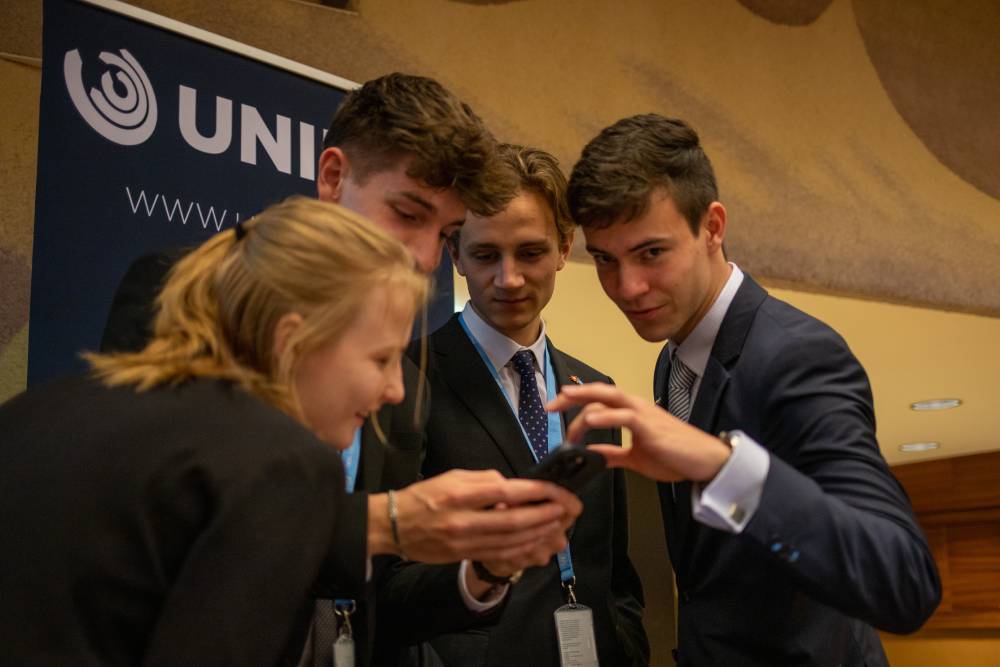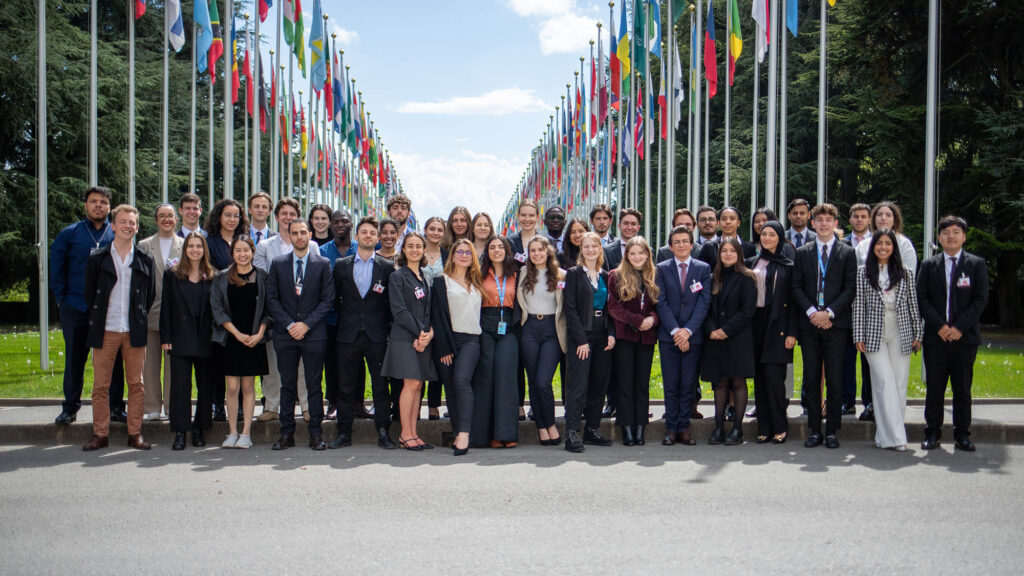World Youth Skills Day (WYSD) highlights the importance of equipping young people with the skills needed to succeed in the labour market. Now marking its 10th anniversary, this year’s theme ‘Youth Empowerment through Artificial Intelligence and Digital Skills’ spotlights the urgency of preparing young people to navigate a rapidly changing landscape. As technology reshapes societies and economies, WYSD provides a space for reflection and deliberation on the evolving needs of young people — the architects of the future — and for collective action toward building a world that ensures their long-term prosperity.
On this WYSD, artificial intelligence (AI) takes centre stage. As the digital landscape grows increasingly complex, so do the skills required to navigate it. WYSD promotes open dialogue between stakeholders – technical and vocational education and training (TVET) institutions, policymakers, organizations and, above all, young people.
The conversation extends beyond the essential skills needed to thrive in the 21st century. It serves as a stark reminder that rapid technological progress often leaves many behind. To enable sustainable, human-centered development, youth empowerment in an AI-driven world must be, first and foremost, inclusive.
Best equipped to face technological challenges
People born between the mid-to-late 1990s and the early 2010s have grown up with digital devices as an integral part of their daily lives, fostering a deeper affinity with technological advancements than any previous generation. However, if one were to describe the AI revolution in a single word, it would be: ever-evolving. Consequently, the understanding of what future-ready skills are is under constant scrutiny. According to the World Economic Forum’s Future of Jobs report, 65% of children starting primary school today are expected to eventually work in occupations that have not yet been created.
Young people recognize challenges of the digital era, joining initiatives across the globe to promote technological approaches that empower rather than work against them. One such example is Youth for Privacy, a youth-led advocacy group that calls attention to the invasion of privacy in a data-driven world. The group actively promotes responsible AI development and cybersecurity awareness, and their engagement in the United Nations Open-Ended Working Group on information and communication technologies stands as a testament to their commitment.
Inclusivity as a driving pillar
Despite the active engagement of many young people and their general familiarity with the rapidly evolving digital world, this is not a universal trend. The digital divide continues to be a pressing reality, marginalizing certain groups from technological advancements and, by extension, placing them at a disadvantage in AI-enabled workplaces. According to the UN, 90% of adolescent girls and young women in low-income countries remain offline.
This month, Volker Türk, UN High Commissioner for Human Rights, emphasized the need to “work towards an inclusive and open digital environment for everyone, everywhere”. Given the profound impact of advanced technologies on future opportunities for employment, equitable access to the very tools is a matter of rights. Digital rights are human rights and must be guided by the same principles.
20 years after #WSIS—the 1st world summit on digital cooperation—we face critical choices on #AI & data governance
— Volker Türk (@volker_turk) July 7, 2025
Leaders must deliver on their commitments to protect human rights in the digital age
Now is the time to work together & build an open & safe digital future for all
In the context of WYSD, it becomes clear that without greater attention to protecting digital rights and aligning young people’s skills with current technological developments, progress toward Sustainable Development Goal 4 to ensure inclusive and equitable education will be hindered. It remains out of reach if the AI revolution reinforces existing inequalities instead of fostering a more peaceful, inclusive and sustainable future.
AI and the future of education and training
WYSD is a call to action for education and training institutions to recognize both the opportunities and challenges that the AI revolution presents for TVET and its provision.
UNESCO-UNEVOC – who established the international day – identifies several key challenges associated with the integration of AI in education and training:
- Bias and inequality
- Low educator readiness
- Limited infrastructure
- High costs
- Ethical and privacy concerns
- Digital misinformation
- Underrepresentation
- Human disconnection
With the growing use of AI tools such as chatbots, it is critical to address their potential misuse in educational and training contexts. The key lies in raising awareness of how these tools function, alongside a clear understanding of their appropriate, responsible use cases and limitations. When approached with a critical mindset, AI can support more personalized learning, streamline workflow, and encourage proactive, rather than passive, engagement with technology.
Despite the prevalence of this debate and how AI has dominated the global discourse, readiness for AI-driven industries remains low. The UN reports that 86% of students do not feel adequately prepared for an AI-enabled workplace. This emphasizes the urgent need for education systems to adapt, and for institutions to ensure access to appropriate infrastructure, tools and training.
UNIDIR’s commitment to support the youth

UNIDIR recognizes that empowering youth through education is essential to building a secure, sustainable and inclusive future. Particularly in the context of emerging technologies, the Institute’s initiatives aim to cultivate a deeper understanding and meaningful engagement among young people with the technological developments shaping international peace and security.
A compelling example is the UNIDIR Youth Disarmament Orientation Course, which equips participants with foundational concepts in disarmament and arms control. It explores contemporary disarmament affairs through critical domains, such as AI, cybersecurity and outer space security.
Then as part of its flagship Outer Space Security Conference, UNIDIR invites future leaders to take part in a video competition. In the form of a short video, individuals aged 18–25 are invited to present their vision of the challenges ahead in outer space security.
These efforts are intended to strengthen youth agency and ensure that young people are not merely affected by future transformations but are actively shaping the principles that govern them. WYSD is a reminder of our collective responsibility to work toward this vision. Young people are not just observers of what lies ahead. They define its course.

